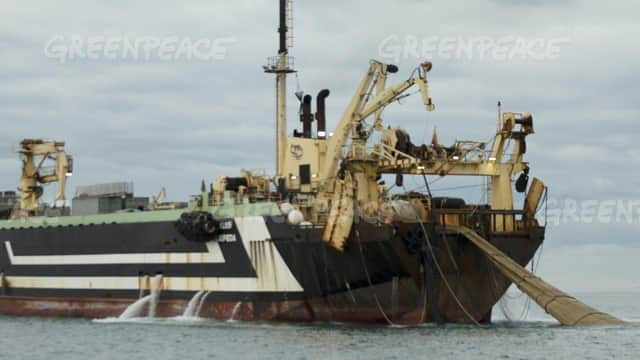Hastings environment group call for ‘destructive floating fish factories’ to be banned


Greenpeace Eastbourne and Hastings Local Group calculated the time spent by the fish factories, called supertrawlers, fishing in Marine Protected Areas (MPAs) off the south east coast of England in 2019.
Supertrawlers, described by Greenpeace, are destructive floating fish factories that can catch and process hundreds of tonnes of fish every day, and are not compatible with healthy oceans.
Advertisement
Hide AdAdvertisement
Hide AdBasurelle Sandbank, the MPA closest to Hastings, was fished in by supertrawlers for a total of 12 minutes, according to the group.
The group said the Offshore Overfalls, near Brighton, was the third most visited MPA by supertrawlers across the UK, with a total of 112 hours spent fishing there, and another nearby MPA, Offshore Brighton was fished in for 14 hours.
A Greenpeace investigation showed that in total, supertrawlers spent 2,963 hours, the equivalent of 123 days, fishing in MPAs off the UK as a whole.
Evie from Greenpeace Eastbourne Local Group, said: “I’m horrified to discover the protected areas off the south east coast are being exploited by industrial fishing giants, and that this is happening legally.
Advertisement
Hide AdAdvertisement
Hide Ad“For the UK government to be taken seriously as a leader in marine protection, it must ban supertrawler operations in the
UK’s MPAs.
“Current negotiations with the EU on fishing rights provide the perfect chance to do this. Please support our call to end industrial fishing in MPAs, by signing our petition.”
A group spokesperson said banning supertrawlers from fishing in MPAs would be a first step towards designating a network of Highly Protected Marine Areas (HPMAs), as recommended in the Highly Protected Marine Areas review.
The spokesperson said the government must now ensure that the recommendations of the HPMA review ‘become a reality’, and grow in ambition to get at least 30 per cent of the UK’s waters, and 30 per cent of the world’s oceans fully protected by 2030.
Advertisement
Hide AdAdvertisement
Hide AdEvie said: “Greenpeace Eastbourne Local Group has been campaigning for several years to protect our oceans. As a coastal city, we know how important our oceans are for food, tourism and tackling climate change.
“In January, we held a photo exhibition in the Beacon Centre, to showcase the beauty of our oceans, and we’ve also dressed up as penguins and marched along the seafront, to call for an Antarctic Ocean Sanctuary, and celebrated World Oceans Day with a blue wave on the beach.”